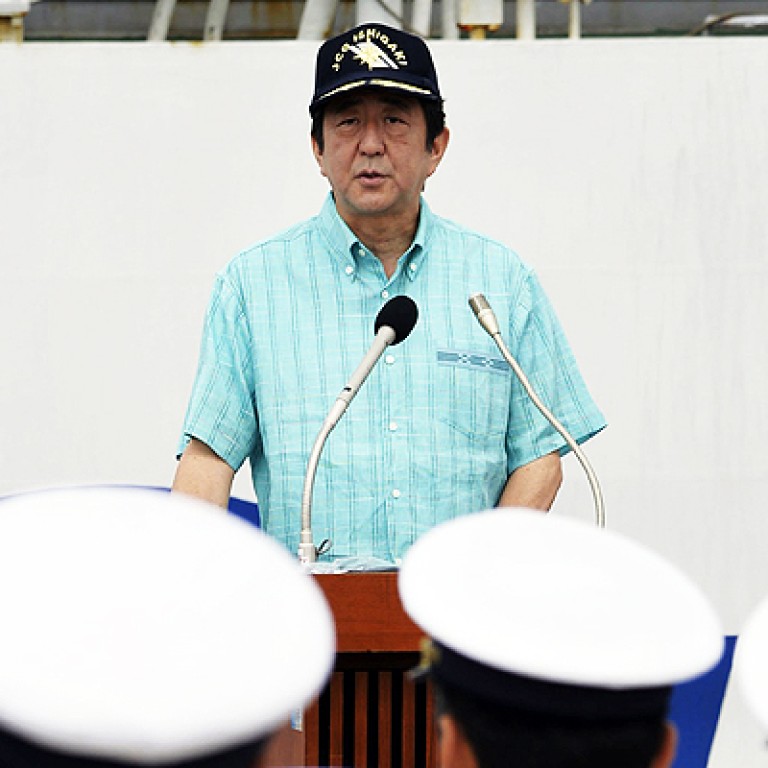
Shinzo Abe slams Beijing 'provocations' on islands tour
Japanese leader vows that Japan will 'never make concessions' but China see his stance as trying to justify changes to pacifist constitution
Japanese leader Shinzo Abe warned yesterday of the heightened security risk facing Japan because of "provocations" from Beijing as he inspected two small islets close to the disputed Diaoyu Islands in the East China Sea.
In a trip seen as sending a tough signal to Beijing, the prime minister vowed that he would "never make concessions" over the sovereignty of the islets, which Japan calls the Senkakus, and that he would lead Japan to protect its territory.
"I will protect people's lives and property, our country's territorial lands, water and air space," Abe was quoted by Kyodo news agency as telling 40 coastguard officers on Ishigaki, an island close to Taiwan and the Diaoyus at the southwestern end of Japan's Ryukyu archipelago.
"Japan faces a grim security environment because Chinese vessels are frequently sailing to areas close to our waters, and there are consistent provocations targeted at us."
Abe visited Ishigaki and nearby Miyako, about 300km south of Okinawa, to canvass support for his Liberal Democratic Party in Sunday's Upper House election, but his visit is expected to dismay Beijing as the two islands are barely 160 kilometres from the disputed territory.
A report by quoting Ishigaki officials, said Abe's visit was the first by an incumbent prime minister since the 1972 reversion of Okinawa to Japan.
The report said the visit showed that Abe's stance on the territorial dispute would not change after the election.
In Beijing, Foreign Ministry spokesman Hua Chunying said that China's sovereignty over the islands was "indisputable".
"China will continue taking necessary measures to resolutely protect the sovereignty of the Diaoyu Islands," she said.
"We urge Japan to respect history and stop provocative moves that impeach China's territorial sovereignty."
Observers said Abe was increasingly resorting to "open confrontation" to boost his standing in Japan, especially after last week's Sino-Russian military drill that saw Chinese military vessels passing through the Soya Strait north of Japan.
"The Miyako Strait is an important passage for Chinese vessels to sail into the Diaoyu Islands," said Zhou Yongsheng , a Japanese affairs expert at the China Foreign Affairs University. "The message of Abe is very simple: he will continue resisting China because China has become a threat."
Professor Lin Xiaoguang , a specialist in international relations at the Central Party School, said Abe was soliciting sentiments for amending Japan's pacifist constitution. Other policies under discussion include Tokyo's Self-Defence Forces being able to strike pre-emptively at enemy bases.
"The situation over the disputed islands has been relatively calm in recent months, but now Abe stirs up the controversy again," Lin said.
"It provides ground for him to amend the constitution by spreading the China threat factor."

